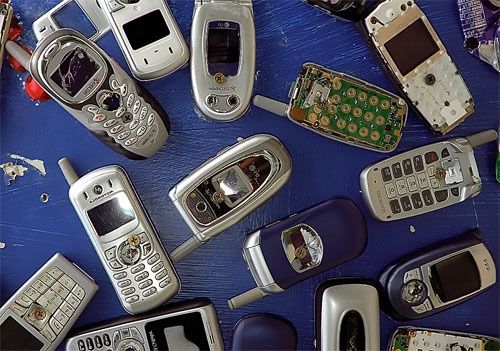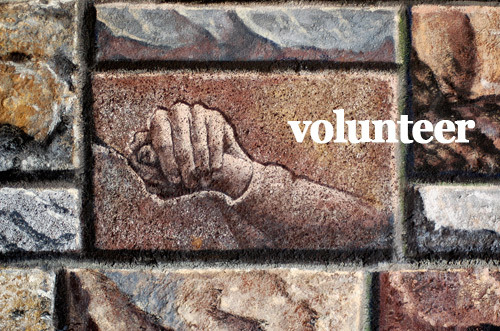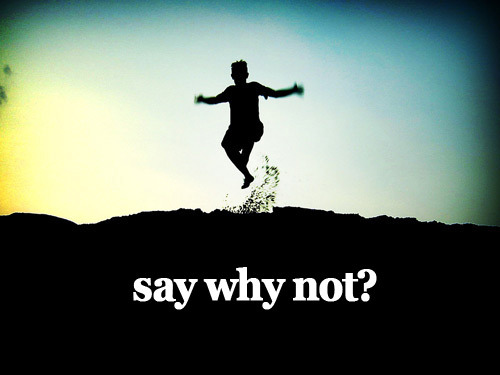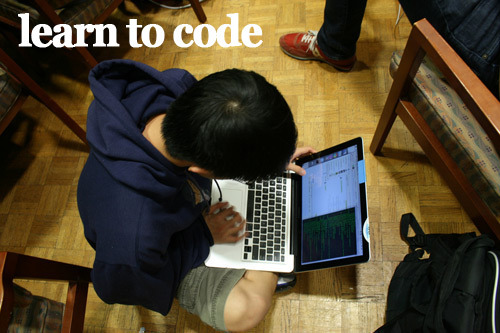More with less. Whether it refers to the daily wonder that we’re carrying in our pocket or purse several times the computing power that once required entire floors, or to the growing demands a fragmenting media landscape places on shrinking legacy brands, perhaps no other single phrase so succinctly captures the triumphs and trevails of the digital age.
With mobile, the adage describes the challenge and opportunity of doing what we did before, plus all kinds of fun, visually and locationally aware new stuff on a smaller screen and, depending on the hardware and network involved, varying degrees of limitations on data speed and usage, connectivity and battery life.
Like a good copy editor, the constraints force all involved to focus on what matters: More signal, less noise.
Like a good copy editor, the constraints force developers, designers and content producers to focus on what matters, often resulting in a better user experience: More signal, less noise.
If you want to know where innovation will arise, just look at the limits. From poor cellphone users in India, to the lack of Internet infrastructure in Kenya to a saturated app market in the United States, here are seven ways, from all seven continents, mobile practitioners are doing more with less.
ASIA: Missed call ecosystem (India)
Everybody makes them and gets them. But most people, in the West at least, probably have not thought about using them. In India, missed calls, the “poor man’s text message,” are used all the time, by people, by apps, even by infrastructure.
From GigaOM, here are a few things Indians are doing with free missed calls:
- Friends, family or business associates might place a missed call to communicate a pre-determined message or, if the recipient is able and willing to pay for a text or call back (incoming calls and texts are free in India), to signal that they would like to communicate.
- After receiving a missed call at a designated number, a system developed by a cloud telephony company and Bangalore-based partner will call users back with dynamic information, such as the current daily deal or real-time bus schedule.
- By attaching a receiver and SIM card, to authenticate that the call is coming from an authorized number, to a switch, startup RealTech Systems created a device that lets farmers turn on and off irrigation systems remotely, saving them from miles-long walks.
AFRICA: Texting lions (Kenya)
In East Africa, the lions are disappearing, in part because herders poison them to protect the livestock they depend on to earn a living.
If herders knew where the lions were, the thinking goes, they could instead just move their animals away from danger. Once you collar the lions with GPS units, which must be easier said than done, tracking the animals is a straightforward enough task to accomplish over a wireless or satellite network. But what if you’re in a place without established Internet infrastructure, like East Africa?
Attaching a simple modem to the lions’ collars as well, as New York-based research company Ground Lab, with the help of nonprofits, has done in Kenya, makes it possible to send lions’ locations to a centralized computer via text message, a potential model for other machine-to-machine communication across the Internet of Things, according to this Atlantic Wire summary.
EUROPE : The French Mobile Revolution
They’re calling it the French Mobile Revolution. Revolution? Yes, and one that might just spread to other nations.
When you learn it’s giving customers unlimited voice, text messages and data for the equivalent of $25.50 a month, you may start to nod your head. When you learn how Internet service provider Free is doing it, you may start head-banging.
It’s doing it, coverage by GigaOM’s Mobilize blog and PC World explains, by networking five million customers’ set-top boxes. Within range of others customers’ boxes, nanocells for data, and, being phased in now, femtocells for voice and SMS, provide Wi-Fi-quality service. Out of range, traditional towers, a 3G network, which will throttle customers who consume more than 3 GB of data in a month, and roaming agreements with other providers, fill in the gaps.
While since Free Mobile’s launch earlier this month competitors have cut prices some, because their networks depend on large, costly cell sites and antennas that took years to build out, they can’t hope to compete with Free Mobile on price long-term.
NORTH AMERICA: Rate everything! Ever-y-thing (United States)
It’s funny ’cause it’s true?
The people behind what many assumed to be a joke app are acting kinda serious, releasing a second native version, for Android in addition to iPhone, and an API.
You’ll get more laughs if you let the above video explain it, but, the app, Jotly, in short, lets users rate anything, then snap a photo of it, tag it and geolocate it.
Yesterday, for instance, I gave the Baltimore area’s first snowstorm of the season – pretty and easy to clean up, but icy and with minimal accumulation – a “C”.
Whether Jotly indeed started off as joke or the jokes completely on us, you can decide for yourself. Either way, even if it’s not the “Best. App. Ever.” as the Web versions of users’ posts proclaim, it’s brillant commentary on marketing hype, feature creep and over-sharing in a crowded mobile app marketplace.
In a way, Jotly is the “Seinfeld” of apps. It’s about nothing, and everything, it parodies itself, it’s as one reviewer put it
, “Dumb and awesome all at once.” In short, it’s so F- it’s an A+.
AUSTRALIA: Training mojos in indigenous communities
At the heart of any mobile content, or any interactive feature for that matter, is the story, not the technology. That mantra is the focus of a government-funded citizen journalism project in Australia, NT Mojos, which seeks to give indigenous residents living in remote areas the tools and training to produce and share videos about their lives.
It’s hoped that the project provides other Australians a less marginalized view of their neighbors, promotes education and literacy in the indigenous community, and establishes enough of a foundation and momentum to sustain itself after the initial outreach has ended.
After training, which, according to an article on MobileActive, focuses on journalism fundamentals including media law, newly minted mobile journalists report, shoot, edit and upload videos on whatever topics they see fit, all on an iPhone 4 and, typically, a 3G network.
The former broadcast journalist behind the model, Ivo Burum, has launched a version in China, is adapting it for schools and educates others how to implement it on his blog.
SOUTH AMERICA: Learning, 160 characters at a time (Brazil)
From augmented reality then-and-now historical tours, to apps that measure air pollution, to self-adaptive virtual tutors, mobile phones are doing things for education that as recently as my high school days might have seemed like science fiction.
These more spectacular m-learning implementations, of course, use smartphones. The root of their power, however, is their interactivity, which even the simplest phones, through the versatile text message, deliver just as well.
In Brazil, where smartphone adoption lags behind North American and Western European markets, SMS subscription services prepare students for a national high school exam and teach them English, among other subjects, The Next Web highlights.
With their immediacy, intimacy, simplicity and brevity, text messages have the power to be a tremendously engaging teaching tool, even more so than many flashy apps.
ANTARCTICA: Here, in fashion and tech, trends are trivial
If you’re not a scientist, it’s one of the last refuges from our hyper-connected society, and even with a purpose, and the resources, staying plugged in in the Antarctic can be difficult.
But in a place where self-sufficiency is not just a virtue but a necessity, the accessibility, versatility and generativity of personal mobile devices are a space-saving, time-saving and potentially life-saving addition to researchers’ and adventurers’ toolbelts.
Accordingly, users follow pragmatism, not trends, when choosing a mobile operating system. Linux-based Maemo 5 was a “longtime favorite due to its compatibility and expandability with virtually everything,” a May post on The Noisecast blog says. But last spring, iOS moved into the lead, according to the post, which speculated about iPhone’s and iPad’s enterprise, academic and clinical potential.
Creative Commons photo by Flickr user David Paul Ohmer




















